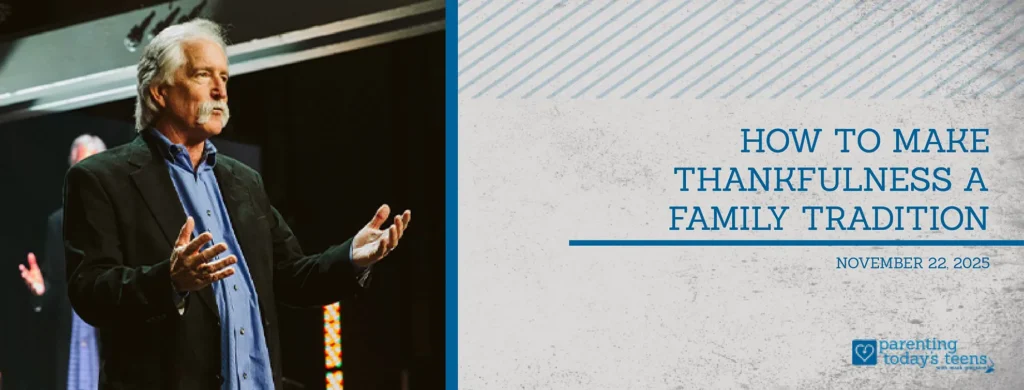The world is full of opinions. Everywhere you look — on social media, in the news, even in everyday conversations — people are eager to share what they think about every topic imaginable. Everyone has a platform, and everyone has something to say. But Proverbs 17:28 reminds us: “Even a fool appears wise when he keeps his mouth shut.”
When it comes to your teen, here’s what I know from decades of working with young people: they don’t want more opinions. They already hear plenty of those. What they need from you is something far more valuable — your perspective.
Your perspective is built on your experiences, your reflections, your observations, and the lessons you’ve learned along the way. That’s something no one else can give your teen. In this article, I want to show you why perspective matters more than opinion — and how to share it in a way that invites your teen to listen.
The Difference Between Opinion and Perspective
An opinion is simply what you think about something. It’s your stance, your viewpoint, your preference. But perspective is richer. Perspective is wisdom in action. It’s what you’ve gained from walking through storms, facing challenges, and living long enough to know what works and what doesn’t.
Here’s the thing: your teen can argue with your opinion all day long. But it’s harder to argue with lived experience. When you share your perspective, you’re offering something deeper — insight that comes not from theory, but from life itself.
Your Window into the Teen Years
The teenage years are some of the most formative years of a person’s life. The experiences your son or daughter has now will shape their thinking and choices for years to come. And here’s the reality: your teen won’t be living under your roof forever. You have a limited window of influence.
If that time is spent delivering your unsolicited opinion about every detail — from what they wear, to what they eat, to who they should vote for — they’ll stop listening. By the time they reach seventeen, they’ll be tuning you out.
But if you spend those years wisely — teaching through example, offering guidance through conversation, and sharing your perspective instead of just your opinions — you’ll leave an impression that lasts long after they’ve left home.
Maggie’s Story
Let me tell you about Maggie, a young lady who spent a year at Heartlight’s residential counseling center. By the time she arrived, things had completely spun out of control. She was using drugs, being disrespectful, and had been expelled from school.
Here’s what’s important to understand: Maggie knew her parents loved her. But she felt like their love was conditional — tied to her behavior, her grades, and whether she lived up to their expectations. Her parents were so busy expressing their opinions about what she should do that they missed her heart.
What finally made the difference for Maggie and her family was when they began to communicate honestly. They stopped hiding behind “shoulds” and started sharing perspectives. Maggie said, “If we had been talking — like really talking — straight up and honest, not just saying what the other person wanted to hear, things would have gone completely differently.”
Her story is a reminder: when opinion dominates the conversation, connection suffers. But when perspective is shared, the door to real relationship opens.
Creating Space for Real Conversations
I’m not suggesting that you lower your standards or compromise your principles. What I am saying is that you need to learn how to share your thoughts without pushing your teen away. That balance is tricky, but it’s essential.
Here’s the truth: some opinions just don’t matter. In a world where teens are battling anxiety, depression, and even suicidal thoughts, does it really matter if your son wears torn jeans or your daughter wants to dye her hair? If every conversation turns into a battle over trivial things, you’ll lose the opportunity to influence them in the areas that truly matter.
Instead of nitpicking every detail, choose your battles. Share your perspective when it comes to values, character, faith, and the lessons you’ve learned in life. And when it comes to things that don’t really matter in the long run, let them go.
How To Share Your Perspective
So, how do you actually make this shift? Here are a few practical ways:
- Share What You’ve Learned
When your teen is facing something you’ve experienced, don’t just tell them what to do. Share what you learned. Try saying, “I remember being in a similar situation, and here’s what I discovered,” or “When I was your age, I thought the same way. But here’s what life has taught me since then.”
This way, you’re not just imposing rules — you’re offering wisdom.
- Root It in Scripture
God’s Word is full of timeless truth. Proverbs, in particular, overflows with wisdom for daily life. But don’t just quote verses at your teen like ammunition. Instead, explain how those principles have proven true in your own life. Show them how Scripture has guided your decisions, comforted you in hard times, and kept you grounded.
- Listen With Curiosity
When your teen pushes back, don’t shut them down. Let them know it’s okay to disagree. Say something like, “I hear what you’re saying, even though I see it differently.” Ask questions. Be curious. Remember, your goal isn’t to win an argument — it’s to understand your child’s heart.
- Keep the Conversation Going
Perspective isn’t delivered in one lecture. It’s built over dozens of conversations. Keep circling back. Build on what you’ve already talked about. Show your teen that these conversations matter enough to revisit — and that your love for them doesn’t waver when they disagree.
The Bottom Line
Parents often tell me, “My teen just won’t talk.” And sometimes that’s true — teens don’t always know how to connect their feelings with words. Other times, they stay quiet because they’re afraid of saying the wrong thing. But just as often, teens go silent because they’re tired of being met with opinions instead of understanding.
Here’s what Proverbs says: “The purposes of a person’s heart are deep waters, but one who has understanding draws them out.” That’s your role. Don’t shut down conversations with quick judgments. Draw your teen out by being intentional about sharing perspective instead of just opinion.
When you listen first, ask thoughtful questions, and share the wisdom God has given you through life experience, you give your teen something far more valuable than advice. You give them a safe place to wrestle with life’s big questions — and a parent who is for them, not just against their choices.
So, moms and dads, don’t waste your influence on opinions that won’t matter ten years from now. Share your perspective. Root it in truth. And let your teen know that while you may not always agree, you will always love them and walk with them through the challenges ahead.






